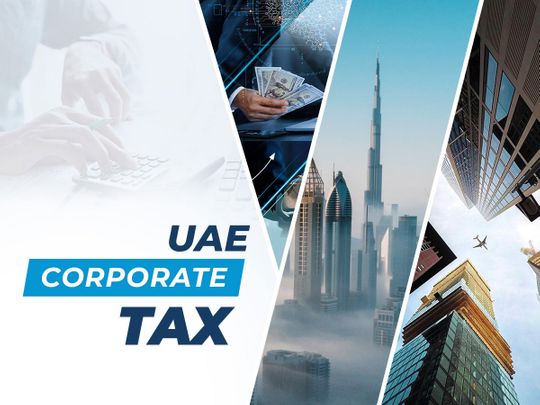Dubai Government and Taxation: A Shift Toward Economic Diversification
Dubai Government and Taxation Dubai, known for its luxurious lifestyle, world-class infrastructure, and impressive business environment, has long been a global hub for trade, tourism, and finance. However, up until recently, it has largely been a tax-free paradise for residents and businesses, attracting multinational corporations and expats seeking tax-friendly environments. For many years, Dubai and the broader United Arab Emirates (UAE) were known for their tax-free status, with little to no corporate, income, or sales taxes. This unique situation created a strong appeal for businesses, entrepreneurs, and foreign investors.
Dubai Government and Taxation However, recent global economic changes and the UAE’s goals to diversify its economy and reduce its dependence on oil revenue have led to a significant shift in its taxation policy. The Dubai government, along with the rest of the UAE, has introduced various forms of taxation, including Value Added Tax (VAT), excise tax, and corporate tax. These changes are part of the broader strategy to increase non-oil revenues and fund the development of critical sectors, such as healthcare, education, and infrastructure. In this blog, we’ll take a deep dive into the Dubai government’s tax system, the various taxes currently in place, and the implications for businesses and residents.
A Brief History of Dubai’s Tax-Free Status
Historically, Dubai and the UAE operated with a remarkably low-tax structure. The government relied heavily on oil exports and foreign trade, which generated substantial revenue. In fact, Dubai became famous for having no personal income tax, corporate tax (for most sectors), and minimal indirect taxes. This made it an ideal destination for expatriates seeking higher salaries, as well as businesses looking for a tax-efficient location for regional operations.
For many years, the absence of taxes was part of the UAE’s strategy to promote foreign direct investment (FDI) and attract multinational corporations. Dubai, in particular, saw massive growth in industries like real estate, finance, tourism, and retail. The city became a global business hub, attracting companies from around the world due to its tax advantages and investor-friendly policies. Expatriates flocked to Dubai for better employment opportunities and high-quality living standards.
However, with the decline in global oil prices over the past decade and increasing pressure to diversify its economy, Dubai’s government began exploring alternative revenue sources. The UAE was increasingly aware that relying solely on oil exports would not be sustainable in the long term. In response, Dubai and the UAE government began gradually introducing taxes and adjusting its fiscal policies to meet the demands of a rapidly evolving global economy.
Introduction of VAT in Dubai

Dubai Government and Taxation One of the most significant tax reforms in recent years was the introduction of the Value Added Tax (VAT) on January 1, 2018. VAT was introduced to generate sustainable revenue and reduce the country’s dependence on oil. At a standard rate of 5%, VAT was designed to be a broad-based consumption tax applicable to most goods and services within the UAE. The decision to introduce VAT was also influenced by the fact that many other Gulf Cooperation Council (GCC) countries, including Saudi Arabia, Qatar, and Bahrain, had already implemented similar taxes.
Under the VAT system, businesses are required to charge VAT on their taxable goods and services and remit the tax collected to the government. While VAT is applied to most items, certain goods and services are exempt or subject to a zero-rate. These include healthcare, education, and certain financial services, which were deemed essential to protect citizens and residents from high costs.
The introduction of VAT marked a fundamental shift in the UAE’s tax landscape, and while it was a relatively low rate compared to global standards, it represented a significant change for businesses and consumers. For example, companies now need to ensure they are compliant with VAT registration, filing, and reporting requirements. Businesses that exceed the threshold of AED 375,000 in annual taxable supplies must register for VAT, while those whose taxable supplies exceed AED 187,500 may voluntarily register.
Dubai Government and Taxation The introduction of VAT was initially met with some concern among residents and businesses, as it added an extra administrative burden for companies, particularly smaller ones. However, the implementation of VAT has been largely successful, and it has become an essential component of the UAE’s tax structure, generating significant revenue for the government. The revenue generated from VAT helps fund key public services, infrastructure projects, and social initiatives, making it a critical tool for diversifying the economy.
Excise Tax: A Focus on Health and Sustainability

Dubai Government and Taxation In addition to VAT, Dubai introduced an excise tax in 2017, aimed at discouraging the consumption of harmful products. The excise tax targets products that are considered harmful to health and the environment, such as tobacco products, sugary drinks, and energy drinks. The tax is designed to generate revenue while simultaneously promoting healthier lifestyles among the population.
The excise tax rates are relatively high. For instance, tobacco products and energy drinks are subject to a 100% tax, while carbonated and sweetened beverages are taxed at 50%. These taxes have been implemented with the goal of reducing consumption of these products, particularly among younger generations, and improving public health outcomes. It also serves to raise awareness about the negative health impacts of certain products.
Dubai Government and Taxation While the excise tax may have initially been met with resistance from certain sectors, particularly the beverage and tobacco industries, the Dubai government has made it clear that the long-term benefits of promoting healthier lifestyles and reducing healthcare costs outweigh the short-term challenges. The revenue generated from the excise tax is directed toward funding public health programs and initiatives aimed at promoting healthier lifestyles.
Corporate Tax Reform: A Major Shift for Dubai’s Business Community

Dubai Government and Taxation In one of the most notable changes to Dubai’s tax landscape, the UAE government announced the introduction of a federal corporate tax, which will take effect on June 1, 2023. The corporate tax rate will be set at 9% for most businesses. However, businesses with profits below AED 375,000 will be exempt from the tax. This move is a significant shift from the previous policy, which allowed most businesses to operate without a corporate tax.
The introduction of corporate tax is part of the UAE’s efforts to align itself with international tax standards and ensure a fairer and more sustainable fiscal system. The UAE government has emphasized that the introduction of corporate tax will not have a major impact on most small businesses, as the threshold for exemption is relatively high. The new tax regime will apply to companies operating in sectors such as banking, real estate, and retail, as well as to multinational corporations with global revenues exceeding €750 million.
Additionally, the UAE has committed to implementing the OECD’s global minimum tax rate of 15% for large multinational companies that meet the necessary criteria. This initiative is part of a broader global agreement aimed at addressing tax avoidance and ensuring that multinational companies contribute a fair share of taxes, regardless of where they are based.
Dubai Government and Taxation While the introduction of corporate tax may raise concerns for some businesses, it is important to note that the UAE remains highly competitive when compared to other global financial hubs. Even with the introduction of corporate tax, Dubai’s overall tax burden remains relatively low compared to other countries, making it an attractive destination for investors and companies.
Implications of Dubai’s Tax Policies
The shift toward taxation in Dubai has important implications for both residents and businesses. For businesses, the introduction of VAT and corporate tax means that companies will need to adopt new tax-compliant practices, including proper accounting systems, tax filings, and record-keeping. Many businesses will need to hire additional staff or outsource their accounting needs to ensure compliance with the new tax regulations.
For expatriates, the introduction of VAT means that the cost of living may increase slightly, as everyday goods and services become subject to taxation. However, the overall tax burden remains relatively low compared to other countries, especially since there is no personal income tax in the UAE. Expatriates will continue to benefit from high salaries, excellent quality of life, and world-class infrastructure, making Dubai an attractive place to live and work.
For the Dubai government, the new taxes offer a means of generating sustainable revenue that can fund critical projects and investments in the country’s future. With the revenue generated from VAT, excise tax, and corporate tax, the government can invest in key sectors such as education, healthcare, and infrastructure, helping to drive long-term economic growth and development.
Conclusion
Dubai Government and Taxation Dubai’s transition from a tax-free paradise to a more diversified tax regime reflects the changing economic realities of the UAE. The introduction of VAT, excise tax, and corporate tax marks a shift toward a more sustainable and balanced fiscal system, one that will support the country’s long-term growth while reducing its reliance on oil exports.
These tax reforms have important implications for businesses, residents, and the broader economy. While the introduction of taxes may require some adjustments, it also presents an opportunity for Dubai to strengthen its public services and infrastructure, ensuring the city remains a leading global business hub for years to come.
For more detailed information about Dubai’s tax system and regulations, visit the Federal Tax Authority website (tax.gov.ae).




